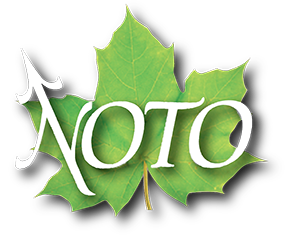
What’s Happening at the Office
With the help of our lobbyist, NOTO successfully elevated the issue on the Gas Tax Rebate Program. We have a meeting with the audit branch and policy staff in October to meet face-to-face and discuss our proposal for changes to their application process.
In July, NOTO worked with MNRF to review the Commercial Outpost Camp technical document. This review has been a success! We have had fewer issues raised from industry folks since this review took place. We asked for a call with MNRF to see how the revised procedures have been received by MNRF staff.
BGMAC will be discussing bear allocations to the tourism industry in mid-October. NOTO will be briefing representatives of this important committee before they begin their deliberations to ensure they are aware of the concerns that face our industry. We are still waiting for the Minister Yakabuski to make an official announcement on the 200m reduction for bear baiting.
NOTO continues to follow-up on concerns regarding the placement of tags and enforcement issues surrounding the new printable tags. We continue to keep the Fish & Wildlife branch informed on the issues as they arise and we are stressing the importance of communication to ensure outfitters and their guests are well informed.
The Manager of Small Sewage Works in the policy branch reached out to NOTO to discuss our concerns surrounding septic systems and to tell us that they have developed a new approach for operators to get approval for older systems. This new approach would allow operators to use calculated flow rates to verify the size and functionality of the system to apply for a certificate of approval. This could be good news, however, this assumes that facilities have water services provided by a municipality and they get monthly water bill listing flow rates each month. This is not the case for most in our industry. In many cases, flow meters would need to be installed which could be a costly challenge for most businesses, with no guarantee of approval. NOTO expressed these concerns and we were advised that the manager would take our concerns to the policy group and engineers. NOTO provided TIAO with a list of concerns and they will follow up with us once they have a meeting scheduled with the Minister.
Forestry continues to be a major issue for our industry. The resistant nature of the forestry companies and the lack of support from MNRF encourage support for the tourism industry in the FMP process is becoming far to mainstream, particularly in the Northeast. NOTO will meet with the NE Regional Director to discuss the state of forestry and the tourism industry. We hope to do this with other MNRF senior staff to show that tourism and forestry can work together, as we have done for decades.
NOTO has requested a meeting with the new Minister of Tourism Lisa MacLeod but the meeting has yet to be scheduled. We are also waiting for a response to see if she will join us at the Summit.
The MTO has circulated letters to businesses with Bush Country Billboards that beginning in May 2020, businesses will be required to pay for their billboards 5 years in advance. Depending in the number of billboards a business has, this will become a huge expense. NOTO has reviewed the MTO’s Corridor Signing Policy and we have found nothing to support this change. We are drafting a letter to MTO with a list of concerns from industry and we are reaching out to other sector organizations and TIAO for their support as well. NOTO is also working on receiving information on the TODS Program to see what operators can expect in terms of fees for 2020. With these changes, we expect that tourism businesses will remove their signs. NOTO is also concerned that tourism businesses that depend on travelling public will be significantly impacted, especially in areas where cell service is poor or non-existent.
NOTO has also been made aware of issues with propane equipment approval certificates.This involves the UL vs ULC rating on propane appliances. These ratings refer to the testing standards used to rate the equipment. From what we learned, all provinces other than Ontario recognize UL without the “C”. TSSA engineers and MCGS see this as a definite problem for compliance in Ontario. MCGS will investigate what it would take to change the national regulation and see how other provinces are getting away with approving UL instead of ULC rated appliances.
If you have any questions or additional information which may help us on any of these issues, please don’t hesitate to contact Laurie via e-mail at laurie@noto.net.
|





